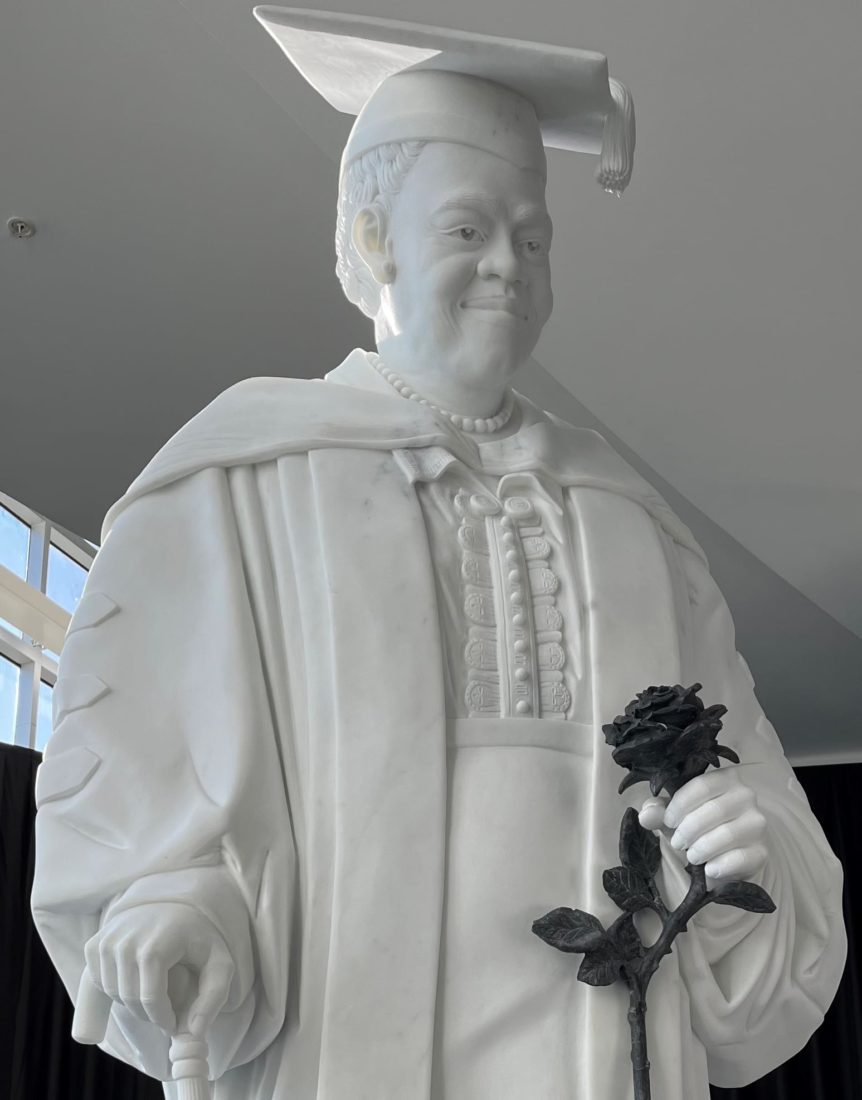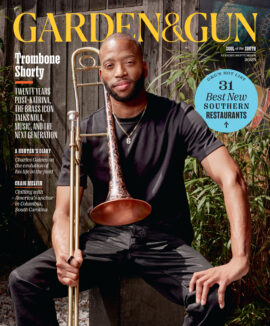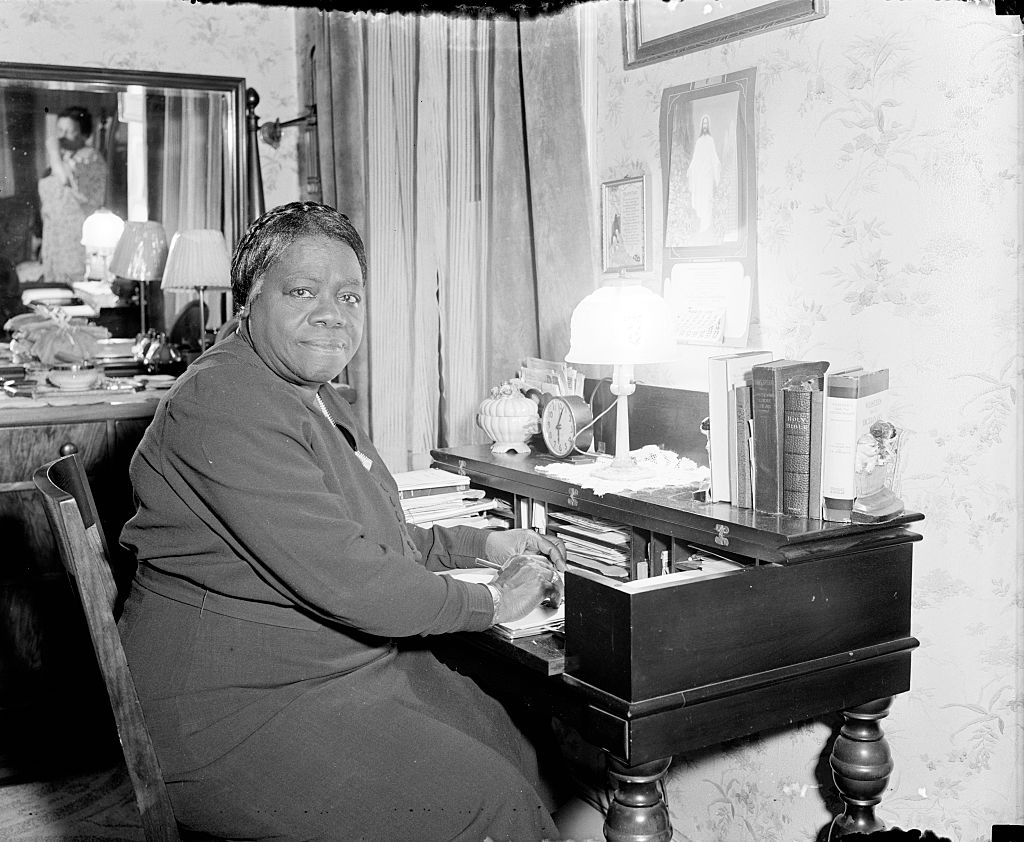Editor’s note: The following originally appeared in the G&G book Southern Women: More than 100 Stories of Innovators, Artists, and Icons. The book features interviews with, odes to, and essays by musicians, actors, artists, designers, entrepreneurs, authors, chefs, public servants, and more who have roots in the region.
When Beyoncé gifted scholarships to four historically Black colleges and universities in 2018, she also honored the legacy of a woman born in 1875 in Mayesville, South Carolina, the daughter of former slaves: Mary McLeod Bethune, for whom one of the schools, Bethune-Cookman University, is named.
As an observant young girl, Bethune had noticed that the ability to read and write was a fundamental difference between Blacks and whites. As she recalled it, “The whole world opened to me when I learned to read.” She became the only child in her family to attend school and pursued her education with a vengeance, continuing through college hoping to become a missionary. Told that there was no need for Black missionaries, she changed her focus to teaching and eventually did social work and taught in mission schools throughout the South.
Her teaching career flourished, and she realized that educating young Black women and girls could benefit the population at large. In 1904, she rented a house in Daytona Beach, Florida, and with little more than an idea and a wellspring of grit, opened a school furnished with castoffs and discards. Initially, there were five students and a rigorous curriculum; within a year, there were thirty students. Bethune had found her vocation. She transformed herself into a tireless fund-raiser, garnering money for her school from a list of notable benefactors, including John D. Rockefeller.
As she became active in fund-raising, she moved into a more public arena. Her role as a champion for the rights of African Americans and women grew, and she was named president of the National Association of Colored Women in 1924. She was appointed to a number of national committees under presidents Coolidge and Hoover and by the 1930s had become a member of the inner circle of Franklin and Eleanor Roosevelt.
The school she founded blossomed along with her career; in 1923, it merged with a neighboring boys’ school, and she became president of what would become Bethune-Cookman College—making her one of the few female college presidents in the country at the time. Indefatigable and relentless, Bethune was also a community activist and a women’s rights advocate before the terms were invented. She founded the National Council of Negro Women in 1935 as an umbrella group for the numerous Black women’s organizations working to secure basic civil rights for African Americans. She also became a special adviser to the Roosevelt administration (many referred to her as the unofficial leader of Roosevelt’s “Black Cabinet”) and the director of the Division of Negro Affairs of the National Youth Administration; lobbied for African American women to be able to join the military; and was the only Black woman present at the founding of the United Nations, among other honors.
By the time she died in 1955, Bethune had carved a path that remains unduplicated. Her words “World peace and brotherhood are based on a common understanding of the contributions and cultures of all races and creeds” resonate as much today as they did when she wrote them in 1939. A statue depicting Bethune with two children in Washington, D.C.’s Lincoln Park celebrates her life and legacy. The inscription on the pedestal simply says, “Let her works praise her.” May we all have an epitaph as true.









